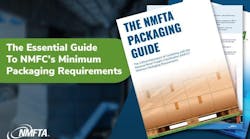Here it is November already and the holidays are just around the corner. That means professional truck drivers need to be extra vigilant as they look for signs of fatigue. Not only must they deal with shorter days and longer nights, but, as the number of holiday parties and family gatherings reach their peak, many drivers will face the prospect of getting behind the wheel without enough recuperative sleep during their time off.
I do not want to get into exactly what defines recuperative sleep, but I will say that it is the entire portion of the sleep cycle that one needs in order to maintain alertness and optimum performance. When someone does not get such sleep, fatigue will certainly set in and one's ability to execute safety-sensitive tasks, like driving a commercial motor vehicle, will rapidly diminish.
Yawning aside, fatigue can sneak up on drivers in many ways. Lane drifting, wandering thoughts, and bouts of speeding up or slowing down are frequent indicators that maybe it's time to pull over and take a nap. Fatigued drivers endanger not only themselves but everyone else on the road.
As recently as last spring, enforcement officials in some states developed fatigue enforcement guidelines for detecting tired drivers. These guidelines for detecting fatigued driving were arbitrary at best; civil action is pending against at least one state for failing to both define fatigue and establish a standard under which a driver would know when to stop driving. Regardless of the outcome of any litigation, it is clear that enforcement officials are just as concerned about fatigued driving as most carriers are — and for good reason given how dangerous it is.
While the industry continues to recognize the dangers of fatigued driving, sleep apnea has been identified as a major factor that must be addressed. This condition is defined as a sleep disorder that disrupts a sleep cycle up to as many as 30 times per hour, resulting in poor quality sleep patterns and leading to general daytime drowsiness and chronic fatigue. As sleep apnea becomes more prevalent in today's driver population, carriers have begun to realize that a proactive approach is needed to help combat this disorder, and one way to do this is to have drivers tested for this condition. If diagnosed with this disorder, then the driver can be treated.
As carriers take a proactive approach to sleep apnea, it seems the Federal Motor Carrier Safety Administration (FMCSA) is not far behind. FMCSA's Medical Review Board has on its agenda for 2010 a discussion regarding pulmonary disorders, including sleep apnea, which will most likely be followed by research and even a proposed rulemaking at some point.
As the holidays approach, and with the regulatory and enforcement landscape what it appears to be, I encourage every fleet in the country to emphasize its sleep management and fatigue-awareness programs. In fact, carriers should make sure that all of their employees, not just drivers, are aware of the signs of fatigue and the dangerous effects of drowsy driving. A good holiday season may just depend on it.
David Heller, CDS, is director of safety and policy for the Truckload Carriers Assn., responsible for interpreting and communicating industry-related regulations and legislation to the membership of TCA. Send comments to Mr. Heller at [email protected].
Forward comments to Mr. Heller at [email protected].


